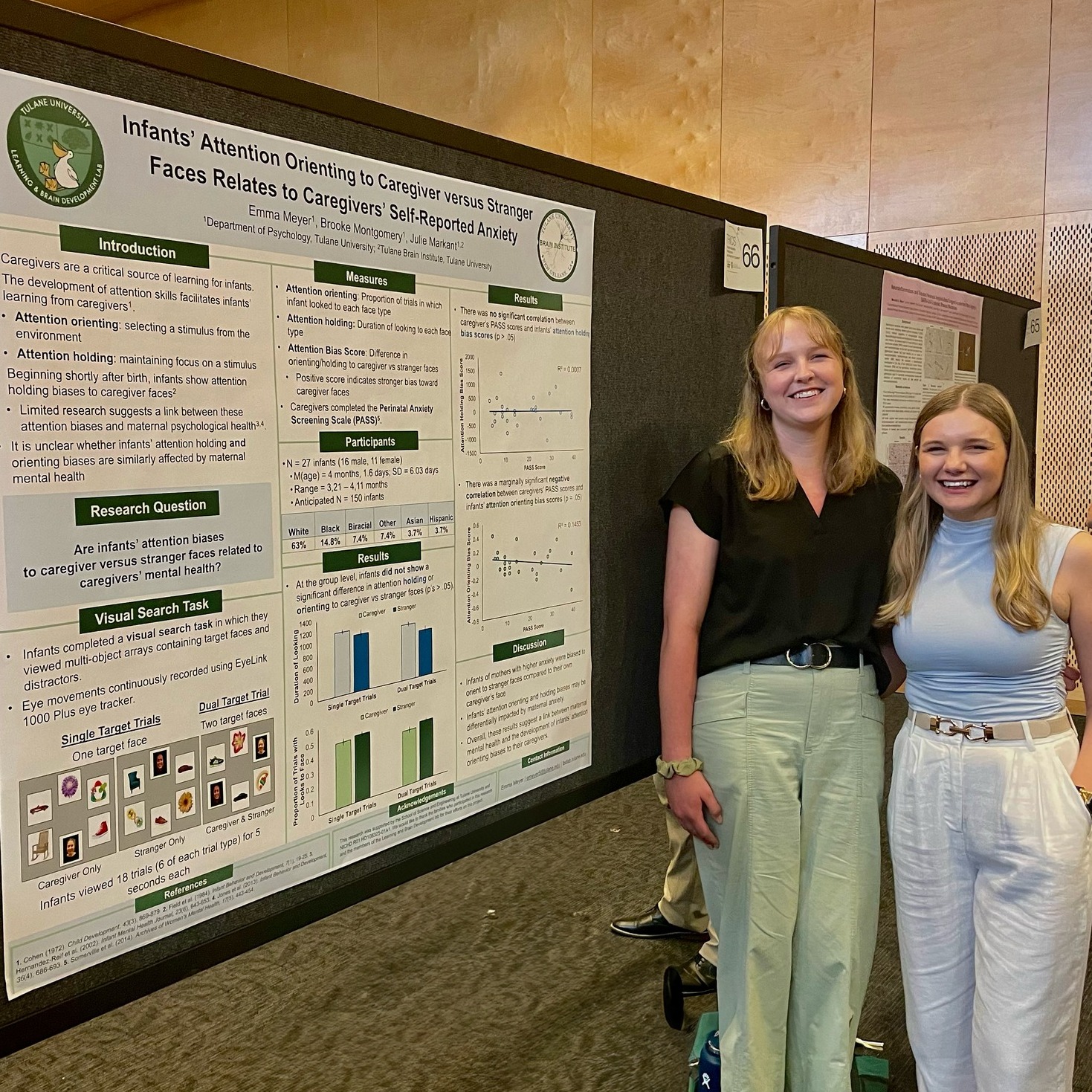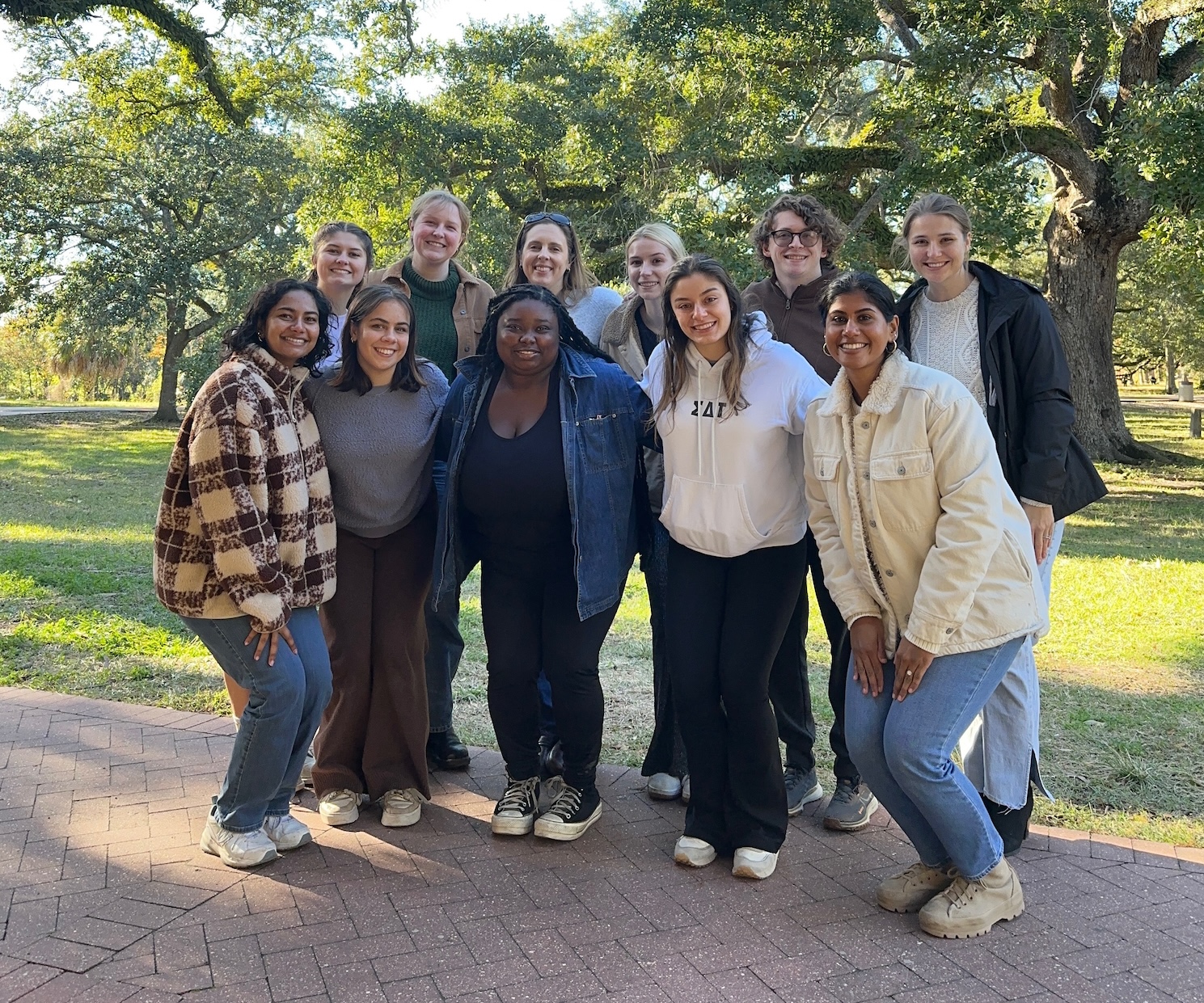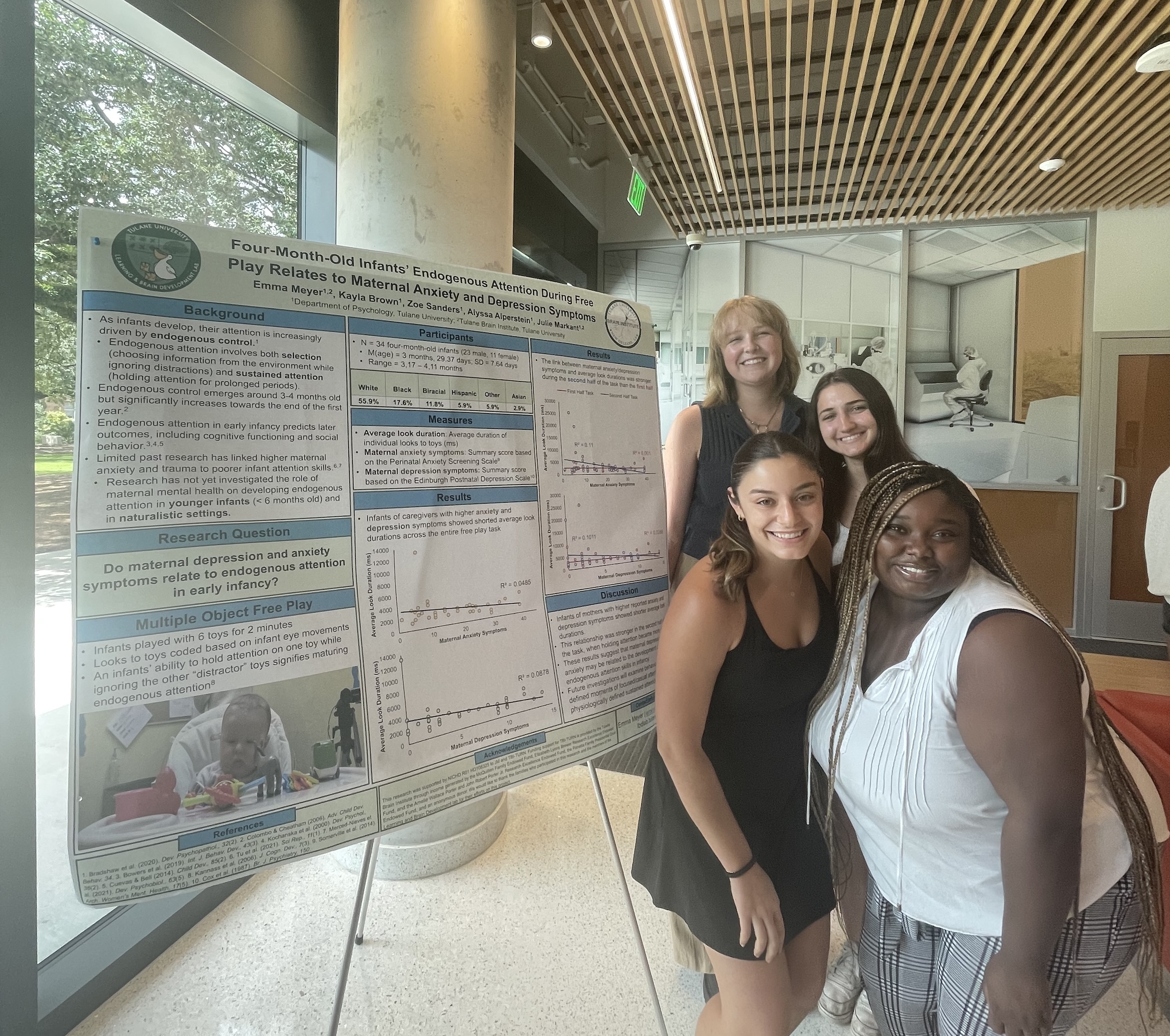Undergraduate Studies in Psychology
Research & Honors Thesis
If you're interested in pursuing graduate study in psychology or other sciences or in allied health fields, research experience is important. While each discipline has its own formal methodology for conducting research, all the sciences and social sciences share common principles for discovering and verifying the integrity of new information. Research in Psychology is the means by which anything new about human behavior is understood.

Steps to Get Involved
Decide if research is right for you.
This means thinking about and understanding your future goals and whether research in psychology will help you meet those goals. You may consider talking to your major advisor, graduate TA, or other faculty member.
Choose a research lab.
The Department of Psychology has 22 full-time faculty, many of whom include undergraduate students in their research each year. Take time to learn about a faculty member's research, and decide if your interests align.
Contact the labs you're interested in.
If you're interested in pursuing research, reach out. Not all faculty are looking for new students, so be sure to contact a few labs you might be interested in. Remember to always be professional, polite, and concise when reaching out to faculty and lab staff.
Undergraduate Studies in Psychology
Why Get Involved in Research?
In science, research is the formal methodology for discovering answers to questions. Research is therefore the process of generating new knowledge. All the sciences depend upon research to discover new information. While, different disciplines have different formal methodologies for conducting research, all the sciences and social sciences share the common principles for what constitutes the process of discovering and verifying the integrity of new information. Research in Psychology is the means by which anything new about human behavior is understood. Applied fields (e.g., health care, the practice of law, engineering, teaching and education, human services and social work, and business) all in turn, use the products of research to inform their work.


Research Areas
Most full-time faculty members in the Psychology Department have a research program. The areas of study vary widely. You should start by reviewing the broad areas of research in which our faculty are engaged by visiting the main research page for the Department. From there, you can learn more about the work of individual faculty members, as well as their contact information. If you are interested in working with a particular faculty member, find out the specific requirements for applying to that faculty member’s lab.
Undergraduate Studies in Psychology
Honors Thesis
If you have a strong grade point average (GPA) of approximately 3.5 in psychology courses and at least a 3.4 overall, you plan to pursue graduate study, and you have been working in a research lab, you may consider completing an Honors Thesis in Psychology. The honors thesis is the culmination of your undergraduate research experience in psychology and involves the empirical data collection and a substantial written thesis document.

Honors Thesis Details
If you're interested in completing an honors thesis in psychology, please review the information below.
In most cases, students who are interested in doing an honors thesis have been working in faculty member’s lab for at least a year and ask that faculty member to supervise their honors thesis. The Psychology Department faculty pages contains information about the research interests of the faculty members in the department. Although many students start with an area and identify an appropriate faculty member, it is equally common for a student to reverse these steps (to start with a faculty member and discover an area from that person). The important thing to remember is that you cannot receive final acceptance into the program until you are paired with an Honors Thesis Director, so this is not a step on which you can afford to procrastinate.
Any member of the faculty within the Psychology Department is a possible candidate for a Thesis Director. Two important considerations in searching for a Director are to find someone who is willing to supervise you, and to find someone with whom you think you'll work well. Some students emphasize the latter, and start by choosing a faculty member.
- Is there a faculty member whose work really fascinates you?
- Have you done research you've really enjoyed in someone's lab?
- Did you take a course from someone who really interested you?
- Is there a faculty member with whom you really get along well?
Any of the above may be acceptable reasons for choosing a Director. Most faculty members will only sponsor an Honors Thesis student who has already done research in their lab, so getting involved in research is strongly encouraged. If you become involved in research early (no later than by the fall of your junior year), then you may have the option to explore other research areas if the first one doesn't work out.
Once you've identified a faculty member as a prospective director, you need to initiate contact with him or her. This should be done as soon as possible, but no later than the deadline for turning in the Honor Thesis Intent Form. Painful as this may seem, there's no way around it, so don't put this off! Stop by during office hours or make an appointment. Although using email to make appointments is fine, a face-to-face discussion is preferred for discussing the possibility of supervising your thesis. Most faculty members are reluctant to supervise a thesis if they have not met the student in person.
Here are some things to keep in mind during your meeting:
- Many faculty members are delighted to work with top (honors) undergraduates.
- You want to convince a faculty member that there is something to gain from working with you. Plan what you will say. Be confident and tell this person why you would like to work with him or her.
- A faculty member may decline your request if he or she is already spread over too many projects, will be on leave, or thinks your area of interest is too far from his or her own. Do not take this personally. It happens. Try someone else.
Your thesis advisor is there to teach and to advise you. He or she has years of experience in conducting research. The process of developing a thesis topic is one of collaboration. Don't worry about getting an idea on your own. Talk to your thesis advisor. He or she will get you pointed in the right direction with a program of readings. Whether you come in with a fairly clear idea of what you want to study, or you only know the broad area, your faculty advisor will want to discuss the ideas and work with you to refine them. The final topic will probably be one in which both of you had some input. It will also be something in which each of you has an interest.
You must register to do an honors thesis by mid-September of your senior year. The Office of Undergraduate Research oversees the administrative aspects of the honors thesis. For additional information review the Honors Program web page. The Department of Psychology requires the honors thesis to be based on empirical research.
The minimum requirement for completing an Honors Thesis in Psychology include:
- An overall GPA of 3.40 upon graduation
- A Psychology Major GPA of 3.50
- The successful completion of an empirical Honors Thesis in Psychology
Students must secure prior approval for Honors Theses from the appropriate ethics committees by the end of the first semester of their senior year (as a prerequisite to Psychology 500 registration). Approval of empirical studies with human subjects must be obtained from the University Institutional Review Board (IRB).
Detailed information on the approval process and links to application forms appear at the Ethics Review Page on the Department's Web site. Approval of empirical studies with vertebrate animal subjects must be obtained from Institutional Animal Care and Use Committee (IACUC), whose forms also are linked to the Ethics Review Page.
Review and approval in both cases normally require at least one month but can take two months or even longer. Please be sure to discuss the timeline for securing ethics approval with your thesis advisor.
Undergraduate Research Resources
